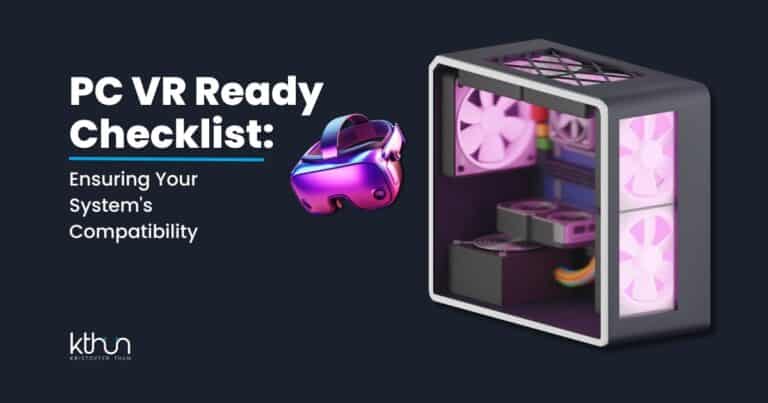Picture a world where you control your money. This is what cryptocurrency offers.
That’s the promise of cryptocurrency, and it’s why millions are now exploring this revolutionary technology.
Where should you start? Right here.
This guide serves as your friendly intro to cryptocurrency. You need no tech skills. We avoid complex jargon.
You’ll learn about blockchain, Bitcoin, and digital wallets.
We’ll cover everything from understanding blockchain technology to choosing the right digital wallet to protect your assets.
No technical skills are needed – let’s explore the world of crypto together!
Disclaimer: This document is NOT financial advice! It’s collected material and opinion-based information based on my own journey – what I’ve found most useful. I am NOT a financial advisor. Only invest what you can afford to lose, and I encourage you to do your own research before investing. DYOR
Crypto for Beginners: What is Cryptocurrency?

Crypto works like digital cash on computers. You can’t hold it like coins or bills.
What makes it different?
Banks don’t control crypto. Governments don’t either. It runs on networks called blockchains.
Think of blockchain as a huge public record book. Many computers keep this book updated. Every money move gets written down. Once recorded, it stays there forever.
This system keeps everything open and safe. No central boss needed.
Bitcoin started it all in 2009.
A mysterious person called Satoshi Nakamoto created it. Now thousands of different cryptos exist. Each with unique features and purposes.
“Money is the most universal and efficient system of mutual trust ever created.”
— Yuval Noah Harari, author & historian
How Bitcoin Works: The Simplest Explanation
Below is a short 3-minute video that explains Bitcoin in clear, simple terms:
Cryptocurrency is…
- A decentralized financial system (DeFi) — operating without central banks
- Decentralized autonomous organizations (DAOs) — community-governed entities
- Social tokens — representing assets or utilities in digital form
- Universal basic equality — providing financial access regardless of location or status
- Digital identifiers — such as NFTs (Non-fungible tokens)
- Interoperability — enabling different systems to work together
All of this under one roof becomes the metaverse and constitutes the new Web.
All of these innovations together are forming what many call “the metaverse“—essentially, the next evolution of the internet.
“What we are creating are digital sovereign states of various sizes.”
— Raoul Pal, Macro Investor
Popular Cryptocurrencies to Know
Bitcoin – The First Cryptocurrency
Bitcoin was created in 2009 by an anonymous person or group known as Satoshi Nakamoto.
As the first cryptocurrency, Bitcoin revolutionized the financial world by introducing the idea of a decentralized digital currency.
Bitcoin functions as a value storage system and payment network. Many call Bitcoin “digital gold” due to its limited supply and value-preserving properties.
It was created to fix some of the biggest problems with traditional money transfers—like high fees, delays, and the risk of payments being reversed.
So why should anyone care?
Because Bitcoin gives you more control over your own money.
It can mean lower fees, faster transactions, and payments that can’t be reversed—useful for situations where that matters.
Plus, it’s completely decentralized, meaning no single company or government controls it.
Ethereum and Smart Contracts
While Bitcoin primarily focuses on payments, Ethereum offers a platform for programmable smart contracts.
Smart contracts are self-executing agreements where terms are written directly into code. Think of them as digital contracts that automatically execute when specific conditions are met.
This enables the development of decentralized applications (dApps) and other innovative solutions.
Other Significant Cryptocurrencies
Beyond Bitcoin and Ethereum, many other cryptocurrencies exist with various use cases:
| Cryptocurrency | Primary Focus | Key Advantage |
|---|---|---|
| Solana | Speed & Efficiency | Processes thousands of transactions per second with minimal fees |
| Cardano | Research & Sustainability | Uses peer-reviewed research and efficient consensus mechanism |
| Polkadot | Interoperability | Connects different blockchains to work together |
| Ripple (XRP) | Banking & Transfers | Designed for fast, low-cost international money transfers |
For an up-to-date view of cryptocurrency market values and rankings, visit CoinMarketCap.
Each cryptocurrency has unique properties and use cases.
Some focus on privacy, others on speed or scalability.
As a beginner, you don’t need to understand all the technical details, but it’s good to know the major players and their main functions.
The Financial Context
Today, virtually all governments worldwide have record-breaking deficits. This theoretically means they are all potentially insolvent.
The answers to these massive deficits are essentially a story of debt.
The Traditional Financial System: Challenges
Currently, most governments worldwide are facing record-breaking deficits. In simple terms, they’re spending more than they collect in taxes.
How do they cover this gap?
- Increasing debt — borrowing more money
- Taxation — collecting more from citizens
- Inflation — printing more money, which reduces the value of existing money
Well, in the old-fashioned way: through taxation, inflation, and reducing the currency’s inherent value.
This system creates several problems:
- Your money gradually loses purchasing power.
- Financial institutions charge fees for basic services.
- International transfers are slow and expensive.
- Central authorities can freeze or seize assets.
Governments are forced to view their citizens as customers and provide value to them instead of exploiting them.
People now have not just voting rights but control over their assets and resources in a new way, without the need for a third party.
The exponential age is here, with a future comprised of decentralized technology that will have an enormous impact on all industries.
“At its core, bitcoin is a smart currency designed by very forward-thinking engineers. It eliminates the need for banks, gets rid of credit card fees, currency exchange fees, money transfer fees, and reduces the need for lawyers in transitions… all good things.”
— Peter H. Diamandis, space and health entrepreneur, and investor
Quick Reminder of Why Bitcoin Exists
- Response to Financial System Flaws – Created in reaction to the 2008 financial crisis, highlighting issues like bank bailouts, inflation, and centralized control over money.
- Decentralization – No central authority, reducing risks of manipulation and failure points seen in traditional banking.
- Protects Against Money Losing Value – A fixed supply of 21 million coins prevents uncontrolled money printing and devaluation.
- Control Over Your Own Money – You own and control your Bitcoin without needing a bank or government approval.
- Censorship Resistance – Transactions cannot be blocked, reversed, or frozen by third parties.
- Privacy and Freedom – Provides a way to transact securely and anonymously, preserving financial independence.
- A Different Kind of Money – Bitcoin isn’t controlled by any government and works outside the traditional banking system.
Why This Rapid Breakthrough?
To understand this, we must first delve into how technology works and the history of money.
Here’s a video about the history of money and the potential of crypto.
Look at our old money system. It runs on debt and deficits. Inflation rises. Banks and governments control the money supply.
How much do they hide from us? We may never know.
Now tech gives us a new way. Power shifts to everyone who uses the currency. The value comes from what we agree to trade it for. We cut out the middleman.
It is open and can be seen by everyone and cannot be changed.
Sounds perfect, right?
Maybe. Time will tell.
But remember that we are all part of this new system developing in real-time. At the same time we use it, we are all guinea pigs in a new system growing at an incredible speed.
The exponential age is here.
We stand at the start of something big!
Below you can see the cumulative value of assets under management (AUM) of crypto funds worldwide from the first quarter of 2018 to the third quarter of 2021.
Getting Started with Crypto

Before diving in, remember that the crypto world is still evolving. Markets can be volatile, technologies are improving, and regulations are developing.
The Golden Rule: Only invest what you can afford to lose, and choose investments that let you sleep well at night.
Step 1: Choosing Crypto Exchanges
To buy cryptocurrencies, you’ll need an account on a crypto exchange—a platform where you can convert traditional money into crypto and vice versa.
Top Exchanges for Beginners
| Exchange | Pros | Cons | Best For |
|---|---|---|---|
| Coinbase | User-friendly interface; Strong security; Educational resources | Higher fees than some competitors | Complete beginners who value ease of use |
| Binance | Lower fees; Wide selection of cryptocurrencies; Advanced features | More complex interface; Can be overwhelming | Those comfortable with technology who want more options |
| Kraken | Strong security record; Good customer support; Reasonable fees | Fewer cryptocurrencies than some competitors | Security-conscious users |
Step-by-Step Guide to Creating an Account
- Choose a crypto exchange that meets your needs.
- Register with your email address.
- Verify your identity through the KYC process (Know Your Customer).
- For Swedish users, this typically involves uploading ID documents and sometimes using BankID.
- Secure your account with two-factor authentication (2FA).
- Connect your bank account or payment card for deposits.
Making Your First Purchase
Once your account is verified and funded, you can buy cryptocurrencies through these steps:
- Choose the cryptocurrency you want to buy (Bitcoin is often a good first choice)
- Decide how much you want to invest (start with a smaller amount).
- Select order type (market price is simplest for beginners).
- Complete the purchase.
Your cryptocurrency will now be in your exchange account.
For beginners, it’s recommended to start with well-known cryptocurrencies like Bitcoin or Ethereum.
Only invest money you can afford to lose, as the crypto market can be highly volatile.
Note: Banks sometimes deny transactions to crypto trading sites. Revolut usually works very well. Make a transfer there and then use their virtual Visa card.
Cryptocurrency Storage: Wallets and Security
Understanding Crypto Wallets
A crypto wallet doesn’t actually “store” your coins—instead, it stores the private keys that give you access to your assets on the blockchain.
Think of it like a special key to a safety deposit box rather than the box itself.
Types of Wallets Compared
| Wallet Type | Security Level | Convenience | Recommended For | Examples |
|---|---|---|---|---|
| Exchange Wallets | Low-Medium | Very High | Small amounts, beginners, frequent trading | Coinbase Wallet, Binance Wallet |
| Mobile Wallets | Medium | High | Day-to-day use, smaller amounts | Trust Wallet, Exodus |
| Desktop Wallets | Medium | Medium | Regular users, moderate amounts | Electrum, Exodus |
| Hardware Wallets | Very High | Low | Long-term storage, larger investments | Ledger Nano X, Trezor Model T |
| Paper Wallets | High (if stored properly) | Very Low | Advanced users, long-term cold storage | Handwritten or printed keys |
For smaller amounts, a hot wallet is usually sufficient.
For larger investments, a hardware wallet is strongly recommended. Remember that greater freedom comes with greater responsibility – you are responsible for the security of your assets.
Best Security Practices
Security is crucial in the crypto world.
Here are some important security measures:
- Use unique, complex passwords for each platform (consider a password manager)
- Enable two-factor authentication using an authenticator app (not SMS)
- Write down your recovery phrase and store it in multiple secure physical locations
- Never store this digitally or take photos of it
- Consider using a metal backup for fire resistance
- Verify website addresses carefully before logging in
- Use a hardware wallet for investments exceeding $1,000
- Create a separate email used only for crypto accounts
- Never share your private keys or recovery phrase with anyone
Your recovery phrase (seed phrase) typically consists of 12-24 random words and serves as the master key to your wallet. Store it offline in a safe place, preferably in multiple physical locations.
Loss of this phrase means permanent loss of access to your cryptocurrencies.
Avoid These Common Mistakes
Even experienced crypto users make mistakes.
Here’s how to avoid the most common ones:
- Never use borrowed money (No Leverage) — The volatility can lead to devastating losses
- Avoid FOMO-driven investments in unvetted projects promising huge returns
- Focus on the 3-5 largest and most established cryptocurrencies
- Have full control over your own assets/wallets
- Trade only a small part of your holdings
- Maintain long-term investment
- See the big picture and ignore daily fluctuations
- Be prepared for significant price drops (35%) – it happens often
- Buy smaller amounts regularly over time
- BTFD = “Buy The F*cking Dip” – buy when prices fall sharply (if possible)

Psychological Mistakes to Avoid
- Checking prices obsessively — This leads to emotional decisions
- Panic selling during market downturns
- Becoming overconfident after successful trades
- Ignoring your risk tolerance — Invest only what you can afford to lose
“Mental Wealth is More Important Than Financial Wealth.Your peace of mind, mental health, and personal relationships are worth more than any potential crypto gains. Never let investments consume you or create unnecessary stress.“
“True happiness comes out of peace. Peace comes out of many things, but it comes from fundamentally understanding yourself.”
—Naval Ravikant , entrepreneur & investor
Current Trends in Crypto
Things change quickly, as mentioned before.
But here are some trends I’ve seen so far that will likely explode in the coming years:
- More people use stablecoins now. These coins make crypto easier to try. They help send money across borders. They work well for online payments too.
- Gaming & Metaverse – This will completely explode in the coming years. Especially together with NFT.
- Tokenization changes how we own things. Now you can buy just a piece of a house. Or part of an artwork. Or a small share in big assets.
- AI is transforming the crypto landscape by enhancing efficiencies and enabling innovative use cases.
- NFTs – Have already exploded, but will likely grow very much
- iNFTs with AI – Imagine your own NFT of, for example, Cleopatra, fed with all the knowledge you give it (like Egyptian history) narrated by her
- Music – Imagine artists and fans having direct contact with each other without a third-party
Useful Resources
Educational Videos
- HOW THE ECONOMIC MACHINE WORKS BY RAY DALIO – A 30-minute explanation of macroeconomics that helps put cryptocurrency in context
- INTRODUCTION TO THE EXPONENTIAL AGE BY RAOUL PAL – A 90-minute deep dive into how technology is reshaping finance
Analytics and Research
- DEFILAMA – The leading aggregator for tracking Total Value Locked (TVL) in DeFi projects
- GLASSNODE – On-chain analytics and intelligence platform with detailed metrics
Educational Platforms
- Coinbase Learn – Free educational content with earn opportunities
- Binance Academy – Comprehensive blockchain and crypto education
News and Updates
- CoinDesk – Leading publication for cryptocurrency news
- The Block – Research and analysis-focused reporting
Quick Reference
100 CRYPTOCURRENCIES DESCRIBED IN FOUR WORDS OR LESS – A fun and simple way to understand different projects
Final Thoughts
Cryptocurrency represents more than just new technology—it’s part of a fundamental shift in how we think about money, value, and trust in the digital age.
Nobody knows exactly where crypto is headed, but one thing’s for sure: Bitcoin and other cryptocurrencies have already changed how we think about money forever.
Going forward, the people who will benefit most are those who stay curious, remain cautious, and take time to understand.
Not just the technology, but what it means for our world.
Whether cryptocurrencies become ubiquitous in daily life or settle into specific niches, the underlying blockchain technology will continue to influence how we verify information, establish trust, and exchange value in an increasingly digital world.
My advice?
Start small, learn continuously, and stay focused on the fundamentals rather than the hype.
The crypto journey is just beginning, and there’s plenty of time to find your place in this exciting new ecosystem.






